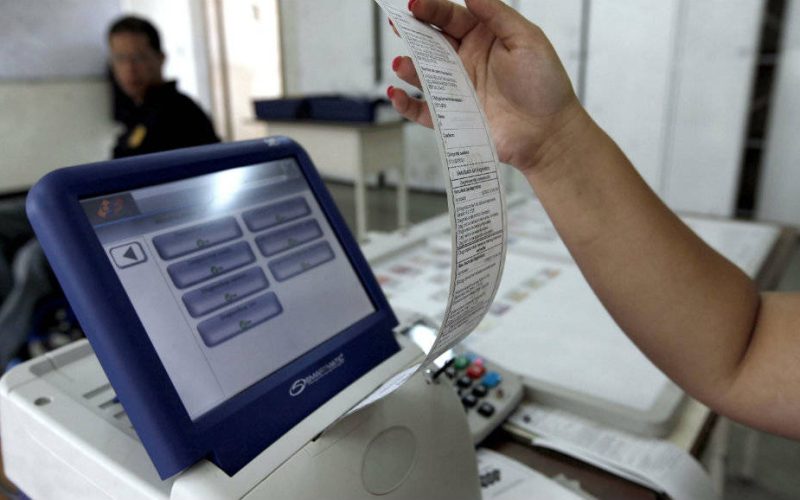The dispute over the award of the contract for the Preliminary Electoral Results Transmission System (TREP) for the 2025 general elections has sparked a wave of criticism and accusations against the technology company Smartmatic. The firm, accused of being linked to several international electoral fraud scandals, is at the center of a debate that threatens to destabilize the electoral process and undermine confidence in Honduras’ democratic institutions.
Accusations of deceit and corruption mar the fairness of the election process
The debate was sparked by a straightforward allegation from Liberal Congressman Jorge Cálix, who claimed that allowing Smartmatic to oversee the TREP system might put the clarity of the electoral process at risk. Cálix emphasized that the firm has a track record of participation in election manipulation in various nations, such as Venezuela, the United States, the Philippines, Brazil, and Argentina, which adds to the distrust among political groups and the populace.
The legislator claimed that Smartmatic, being established in Venezuela, is associated with numerous irregularities in global voting activities. He believes that enabling Smartmatic to operate the TREP poses an unacceptable threat to the integrity of the approaching elections in Honduras.
The company, on its side, has denied the allegations, labeling them as a «propaganda move.» Smartmatic representatives assert that they functioned with full transparency during the 2025 primaries in Honduras and that their voting systems have undergone audits and received validation from multiple global organizations.
The refusal and internal political conflicts
The controversy has escalated due to the boycott by parts of the governing LIBRE party, who have hindered other competing companies from entering, thereby supporting only Smartmatic’s bid. This has raised doubts among the opposition, who allege that the ruling party aims to benefit the company in a move that might influence the election outcomes.
In the midst of these confrontational circumstances, various political figures have voiced their worries regarding the potential effects this control may have on the public’s trust in the electoral process. The opposition believes that permitting Smartmatic to handle the transmission of early results might lead to opportunities for manipulation and fraud, particularly in the face of the polarized political climate and increasing skepticism toward the nation’s institutions.
Global influence and the challenge of authority
In addition to internal tensions, the situation has been complicated by allegations against Roger Piñate, the founder of Smartmatic. US prosecutors have singled out Piñate for his alleged involvement in bribery schemes related to electoral service contracts, a case that also involves Venezuelan officials and their alleged links to the company.
This series of allegations has raised questions regarding the integrity of the elections that the company has overseen globally. Nevertheless, Smartmatic stands by its history and asserts that it has adhered to all international standards in every nation where it has conducted operations.
In Honduras, electoral authorities face a crucial dilemma: the need to ensure a transparent and manipulation-free process without undermining confidence in the institutions responsible for overseeing the elections. Political polarization could jeopardize the country’s social stability, as sectors critical of the ruling party fear that this situation could lead to a crisis of legitimacy similar to those experienced in other failed electoral processes.
The National Electoral Council and the future of the electoral process
As the situation escalates, all attention from the public and international watchers is centered on Honduras’ National Electoral Council (CNE). This organization will decide if Smartmatic secures the contract for the TREP, thus gaining control of a system essential for ensuring transparent election outcomes.
The concern that persists for numerous individuals is if the nation can safeguard its voting system against potential fraud or manipulation attempts. In this scenario, pleas for a national conversation involving political groups and civil society are gaining importance. The atmosphere of skepticism and allegations of partiality necessitates an agreement to ensure the process’s credibility while preventing political rifts from turning into a more severe crisis.
Honduras’ next challenge lies in consolidating a robust electoral system that not only withstands internal pressures but also remains immune to the temptations of external manipulation, in order to protect the vote and ensure the country’s democratic stability in a scenario of growing polarization.
